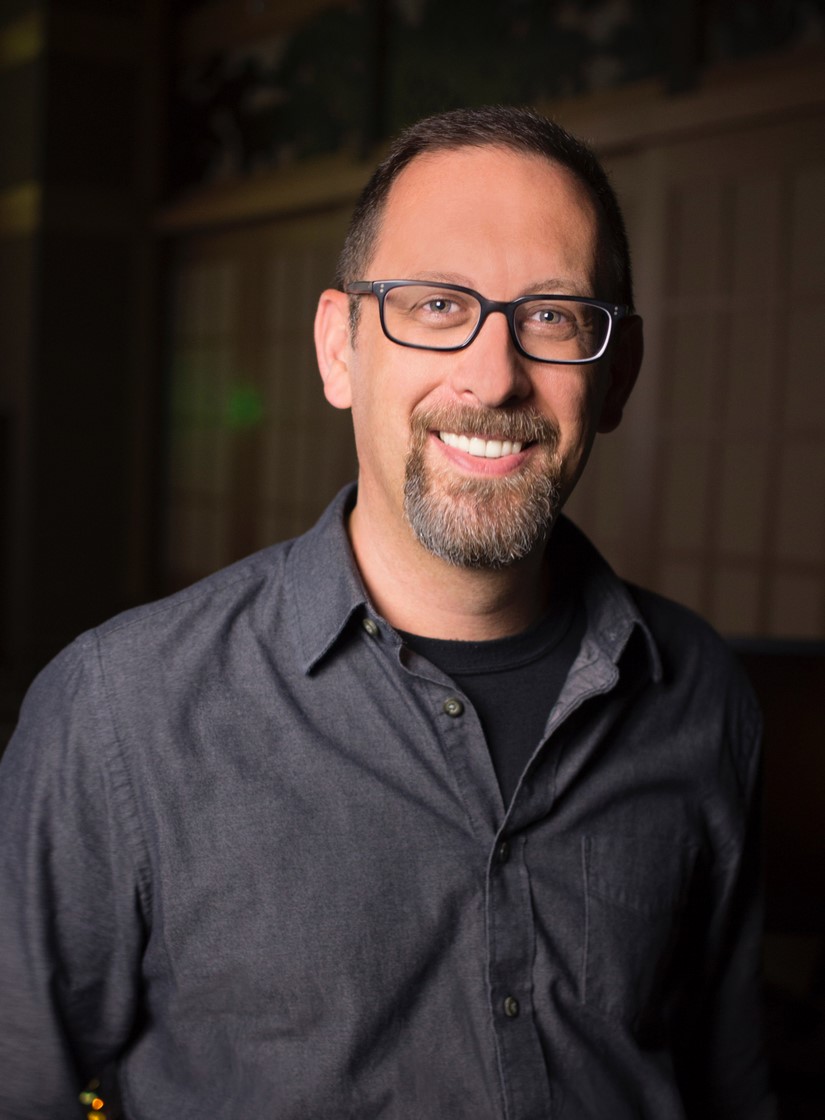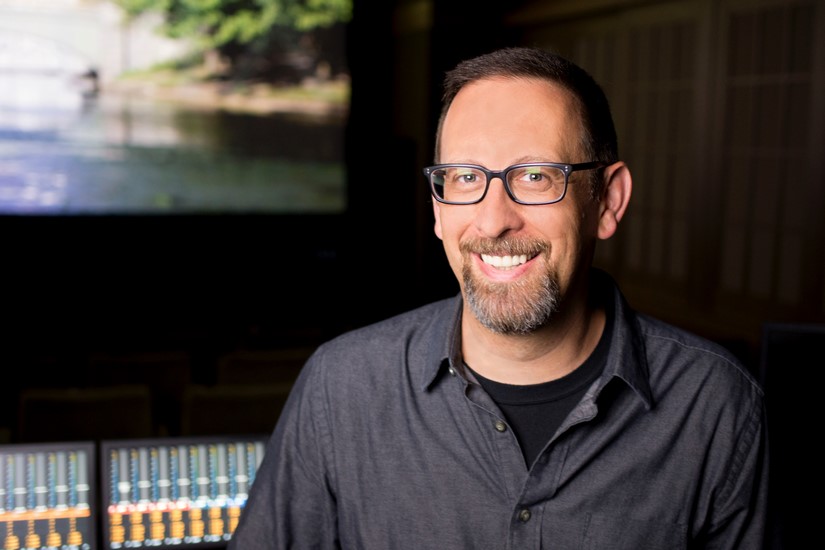DS: Hi Mandell, thanks for taking the time to join us. Today I want to talk a little about supervision and what it means to be a supervising sound editor, but first can you tell me how did you find your way into doing sound and more specifically, sound for film?
MW: I took a general filmmaking class in high school by accident. I was trying to get into the graphic arts program but it was full. In the middle of the semester the filmmaking class ended up getting Pro Tools version 2. I think it had four tracks and was pretty limited, but I was the only student who sat down and tried to figure it out. I didn’t know what I was doing but it sparked my interest in sound.
DS: Can you talk about the first films that you got on and that process?
MW: It wasn’t a straight path. I started by coming up through the vault and moved into the sound department at a facility specializing in foreign versioning. I wasn’t at the right facility for what I wanted to do, but I didn’t know that at the time. Eventually, I met a few people and started sitting in with them over at Soundelux. I’d spend my mornings there and go do my second shift over at my regular job. After some time, the folks I shadowed gave me reels to conform, foley to edit. Everything progressed from there.
DS: How did you progress from being a sound editor to being a supervising sound editor?
MW: I worked in boutique sound houses that had a lot of projects coming through which led to more opportunities. I started co-supervising and building my resume, and eventually took on projects by myself and supervising those.
DS: So it’s one of those things where you’re co-supervising so many with someone and then eventually they give you one on your own?
MW: Yes. A lot of times one person would handle the dialogue and the other person the effects. You’d come together and figure out the best approach to get to the finish line. After a while I had established some relationships with filmmakers and eventually, I’d get my own shows.
Video courtesy of Los Angeles Post Production Group
DS: How do you set up the schedule?
MW: Usually I’ll look at the post schedule that the client provides and see where they have benchmarks. From there I evaluate how to break down the resources to accomplish the tasks necessary for any given deadline. When possible, I tend to load up the front end for the first temp mix because that is our “first final.” Then I’ll expand and contract as needed.
DS: How do you know how many weeks are enough time? Does the company help you with that?
MW: Is there ever really enough time? It’s really dictated by budget. I’m not going to ask my editors to work for free. I know that I need a dialogue editor for so many weeks to hit this benchmark, an effects editor for this many weeks before we hit that benchmark. You do the first temp, and the feedback may require a re-shoot. Sometimes the film goes on hiatus and there is the potential that they’ll lay off the entire sound department. Then you have to figure out, how are we going to navigate this process. Keeping in mind all of the different factors that go into making a film and being responsible for the sound of the film.
DS: So let’s say you go on hiatus for 6 weeks or whatever and you come back and one of your editors is already on another film?
MW: That happens quite often.
DS: So then you need to scramble and find a new editor to fill that position?
MW: Right, so you have to have a deep bench. Being in Los Angeles, there are phenomenally talented people and I’m lucky to get to work with quite a few of them. I feel grateful to have such a large pool of amazing people that I can call.
If you agree to do a lower budget project, your rate may not be where you want it to be. But if it’s a good film and you feel strongly that you want to be a part of it, you just do it. You put in 110% no matter what.
DS: That’s great! Now looking at budgets I know that sometimes budgets get smaller. What do you do if you feel that the budget is a little tight in a certain area, or you’re not getting as much time or as much budget to put the time into something? How do you deal with that? Do you look at it and say “okay we’re going to have to cut some corners here?” What do you do when the budget’s not quite what they want?
MW: Well, first you have to hit their number. You can always say “I can’t do it for that number, but I can do it for this.” Your chances of getting the film at that point are a little harder unless you have a great resume and the filmmaker really wants you. However, if you agree to do a lower budget project, your rate may not be where you want it to be. But if it’s a good film and you feel strongly that you want to be a part of it, you just do it. You put in 110% no matter what.
DS: What percentage of your time on a project is spent dealing with clients, administrative work like hiring people and dealing with budgets, and creative work such as sound design or cutting sound effects?
MW: There is a fair amount of management and planning that goes into any project. It is a balancing act to maintain both the creative and business sides as a supervising sound editor.
DS: Do you find the work or does the company assign clients to you?
MW: Both. I like to feed myself by going out and finding different projects. There are a few people that I work with that I find very inspirational with how they approach finding work.
There are times where you get so overwhelmed with work where you’re like “I can’t spend any time looking for the next project because I’m just drowning,” but you have to. Otherwise there will be no work after this project. You’ve got to keep looking. Part of the job is finding your next job.
I like to think that I’m of a similar mindset, where we’re constantly reading the trades, and seeing what’s being made and looking ahead. There are times where you get so overwhelmed with work where you’re like “I can’t spend any time looking for the next project because I’m just drowning,” but you have to. Otherwise there will be no work after this project. You’ve got to keep looking. Part of the job is finding your next job.
DS: Does that come from existing relationships with directors and producers?
MW: Existing relationships are key, but it’s also trying to find up-and-coming filmmakers.
DS: How did you find your team? Is it word of mouth? Assigned by the company?
MW: A lot of us have worked together in the past. David Esparza is a frequent collaborator and one of the best sound designers that I’ve worked with. He’s a co-supervisor of mine. I’ve done nearly 40 projects with him. He is by far one of the most talented people that I’ve ever worked with. My dialogue editor Micah Loken is also great. I had heard about his work and coincidentally things just worked out. I try and keep him as busy as he wants to be.
DS: That’s a good strategy for keeping him on your team. Keep him working and keep him busy.
MW: Yeah, my assistant too. I’ve been working with Eryne Prine since 2013 and I’ve kept her consistently employed. I work really hard to make sure that they’re working. I worry about everybody, their rent, their mortgages. Everybody’s got bills and since I’m the supervisor, I feel very responsible for all of them.
DS: That’s a good attitude to have.
MW: I know they appreciate it.

DS: How often do you check in on the progress of your team members?
MW: We’re in touch quite often. There are times where I’ll get stuck on an ADR stage for days on end, so it’s always a work-in-progress. I try to assess where we’re at every few days. I don’t want to micro-manage them because I know they’re all professionals and they know what they’re doing, but I like to know where we stand so that if the client wants something bounced out and sent to the cutting room, we can do that. We always need to be one step ahead.
DS: How much do you interact with the picture department?
MW: I’m in touch with them quite often as well, especially with the assistant editors. We work very closely with them, getting all of the materials we need. On features and TV, I communicate with the editor to understand their sensibilities and where they want to go with the soundtrack because often times we will spend more time with the editor than the director. It’s important that we’re all on the same page.
[tweet_box]Mandell Winter Gives Us a Peek into the World of the Supervising Sound Editor[/tweet_box]
DS: How do you negotiate a budget?
MW: [laughs] That is the big question. You have to see if and where they’re willing to budge. You can say, “Hey, I’ve got this great plan that I’m suggesting for your film. It requires us to go a little outside the box, if you’re open to that.” If the budget is X, you can’t just go in with Y. They’re going to say no.
DS: So do they usually throw out a number first?
MW: Yes, a lot of times they’ll say, “This is our budget. This is our post calendar. Can you put together a labor distribution and a budget for sound?”
DS: I’m sure it’s also influenced by things like, did they go over budget on principal photography? and that sort of thing.
MW: Yes, that can happen.
DS: How do you plan out the overall sound of a film?
MW: I start with the script. How can sound help tell the story? Then I’ll talk to the filmmaker and creative team to find out their sensibilities and where they want to take it. What style are we going for? Often times you’ll see it flushed out already in their AVID tracks. I believe in respecting the work they have already done. We don’t want to completely reinvent the wheel, just make it a bigger and better wheel, or maybe if we’re successful, a little more sophisticated.
DS: Right, and things are getting more sophisticated. Now Atmos is in the home theater systems and in theaters, it’s really catching on.
MW: More and more of our delivery now for television is in Atmos.
DS: How do you assign people on your team to different jobs or specific sounds? Are you more inclined to give them a reel or are you more inclined to assign a specific subject to cut?
MW: It depends on the project. On #FREERAYSHAWN, I had a sound effects editor who handled most of the workload. Then I had another sound effects editor dedicated to just the big set pieces. I split the workload when possible between two dialogue editors. And then I have a dedicated foley editor who is also our first assistant. I’ve been using different foley teams for the last several projects too.
DS: How much input do you give on the mix? Or do you leave it largely to the re-recording mixer and director?
MW: I communicate with the mixers and let them know where we’re going, but I don’t sit down at the console with them. I want to have fresh ears on the material and I don’t want to influence too much at first. For me it leads to a larger conversation and collaboration doing it this way. But I constantly have my ear on the mix, making sure we’re not missing anything and we’re telling the story. Once we’re on the mix stage, we can decide what’s the most important element to hear. Every mix is different and every mixer has a different approach. I want to be respectful of their process and also make sure the client still feels taken care of.
DS: What’s the difference in supervising TV and film? Do you have a different approach? What’s the difference in the schedule/time frame?
MW: TV has a shorter time frame, but I approach both as I would a film. There are incredible stories being told on the small screen right now that deserve to sound just as good as films on the big screen. Feature directors are doing more and more television, and their expectation is at a film level. I walk into it with that same expectation. It’s harder to achieve but everything must sound as good as possible regardless of time and budget constraints.
DS: Have you seen television show budgets go up now that TV’s being done more cinematically in recent years?
MW: That’s an interesting question. There are different tiers of budgets for television today. Some of the premium content is mixing 5 days or more. Both Defending Jacob and The Outsider had quite long mix schedules, but they also had scale and content that was incredibly cinematic.
DS: And that’s what it’s coming down to now, it’s like doing an 18 hour long movie.
MW: Very much so, and that’s why it’s attracting feature directors. They want to explore long story arcs that require 8, 10, 12 hours to tell the story, but they still want that same approach as a film.
DS: Right, and I think that in television right now there’s kind of a wider range of what they’re willing to do in television. I feel like film there’s so many remakes and reboots of stuff right now. Which is understandable that they want to get a return on their investment, so the easiest way to do that is to do a remake or a reboot, something that already has an audience. But we’re seeing television go in these directions that are sometimes kind of far out there, and taking some risks, and we’re getting some cool content because of that.

MW: For a long time I wanted to be considered only as a feature guy. But a few years ago, I had a conversation with a colleague of mine who strongly suggested I consider premium TV. He has since moved to a different studio but I always respected what he said to me. I started thinking about it more because there is great cinematic content being created for the small screen.
For instance, Defending Jacob is about the unraveling of a family through a devastating event. It required a certain amount of restraint from the sound effects and design. The entire cast was phenomenal and we wanted the sound to elevate Morten Tyldum and Mark Bomback’s storytelling. Every detail from the news reports to the flashbacks had to elevate and not feel heavy handed. The dialogue had to play clean so we could feel the grief and emotion behind it all.
The Outsider also deals with grief but in a slow burn detective investigation intertwined with supernatural elements. After establishing the gritty detective world, we leaned into the suspense of the unknown but avoided the typical horror tropes associated with the genre. As El Cuco speaks to his victims in a whispered tone we maintained elements of the host’s voice. Sound and music elevated everything here to really embrace the insidious darkness.
In contrast, working with Antoine Fuqua on #FREERAYSHAWN for Quibi brought our cinematic sound style to the forefront in a short form program designed for the phone. Having worked on several projects with Antoine, we knew it had to have big and bold sound effects, rich backgrounds, and that the crowds would become a character in their own right. It had to feel authentic for the audience to truly experience this tragic story, and the sound needed to cater to that. Many of us only know about things like this secondhand through news coverage, but it’s all too real in our society.
DS: I think we’re getting down to the end here. Is there anything else that you’d like to add?
MW: I find myself immensely fortunate to do this work and to work with so many talented people. It’s hard hustling projects and working long hours, but it’s truly rewarding to push what we can do with sound in TV and film and to contribute to some of the best storytelling of our time.
You can find Mandell Winter on IMDb here and at Sony Picture Studios here.
We want to give a huge thank you to Mandell Winter for sharing some of his perspective and experience with us.





